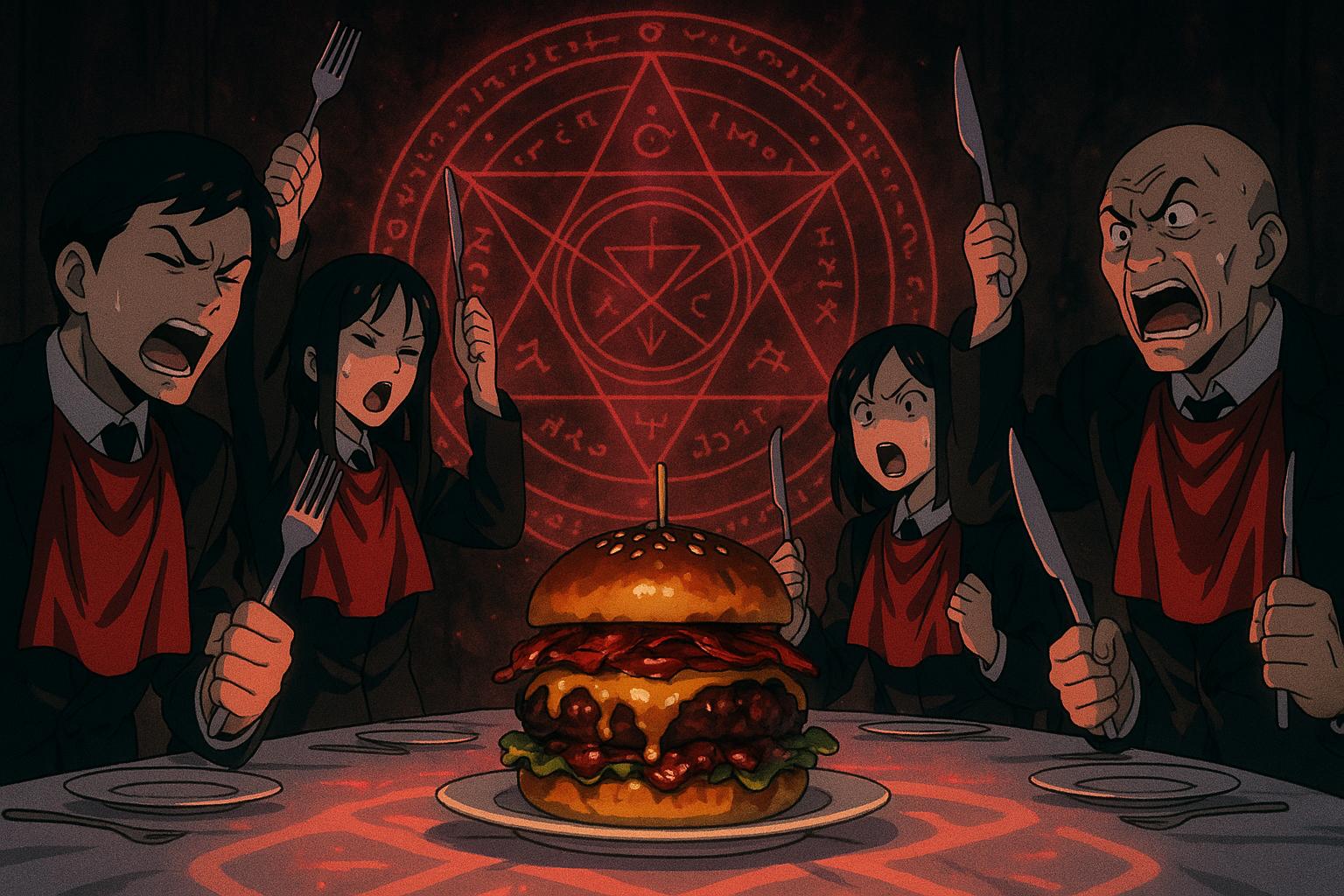KFC's latest advertising campaign, promoting “The Dirty Louisiana” burger under its "Believe" brand platform, has ignited a severe backlash, marked by a flood of consumer complaints and ethical concerns. This new 20-second advertisement, produced by the agency Mother, showcases a group sitting in a dimly lit room, seemingly engaged in a ritualistic meal. The imagery is striking; diners chant and strike their cutlery while donning red napkins, before indulging in the titular burger, which critics argue bears an unsettling resemblance to the controversial practice of consuming Ortolan buntings—a practice now illegal in France due to animal cruelty concerns.
The parallels drawn by viewers between KFC's ad and the ritualistic dining of Ortolan are troubling. In the traditional method, these small birds are kept in darkness, force-fed, and drowned in brandy before being consumed whole, leaving only the beak. This brutal practice has evoked horror in many, and KFC’s visual narrative—while likely intended to evoke a sense of community and indulgence—has instead led to accusations of endorsing animal cruelty. “The Dirty Louisiana is one of our most decadent burgers yet, worthy of being shrouded in intrigue,” said Danielle Ruggles, KFC UK & Ireland's marketing manager. However, critics argue that the ad is not merely whimsical but rather crosses ethical lines.
Compounding KFC's troubles is the notoriety achieved by the previous commercial in its "Believe" series, “All Hail the Gravy.” This particular ad has now accumulated more than 1,300 complaints, ranking it among the most protested ads in history. Viewers voiced that it contains imagery reminiscent of cannibalism and satanic rituals, further aggravating public sentiment. The Advertising Standards Authority (ASA), however, decided against investigating these complaints, asserting that the issues raised did not breach any advertising codes. This decision highlights a growing tension between creative expression in advertising and public morality, particularly in relation to how food is portrayed and the ethical implications behind its consumption.
The ASA’s dismissal of complaints surrounding the "All Hail the Gravy" advert appears to contrast with a broader cultural sensitivity. While KFC defends its promotional approach as a novel experience, viewers have characterised the imagery as “disturbing” and “nightmarish.” The juxtaposition of humour and horror has led to calls for the ads to be banned, especially given the concern about their impact on younger audiences.
Consumer reactions also extend beyond mere indignation, with ethical food companies like VFC, which promotes vegan alternatives, criticising KFC's messaging. VFC launched its campaign urging consumers to "Believe in Chickens," a direct challenge to KFC's narrative, highlighting questions of animal welfare in the fast-food industry. Such contrasting campaigns not only critique KFC's portrayal of chicken as a menu item but also shed light on the evolving consumer landscape that increasingly values ethical consumption over traditional fast-food appeal.
In light of these controversies, KFC finds itself at a crossroads, with its advertising strategies being scrutinised for their ethical and social implications. While the fast-food giant seeks to build a community of "believers" around its products, it will need to navigate the fine line between playful marketing and responsible messaging more carefully to avoid further backlash. As the debate continues, it is evident that KFC’s latest advertising efforts have stirred not just appetite but also a significant public discourse on food ethics and the responsibility of brands in shaping culinary narratives.
Reference Map
Source: Noah Wire Services
